11 Composting Tips for End-of-Summer Garden Waste
As summer comes to a close, it’s the perfect time to turn your garden waste into nutrient-rich compost. By properly managing your compost pile, you can recycle plant trimmings, leaves, and kitchen scraps, helping your garden thrive. With the right balance of materials and a few simple techniques, you can speed up the decomposition process and create healthy soil for your next planting season.
This post may contain affiliate links, which helps keep this content free. Please read our disclosure for more info.
Balance “Browns” and “Greens”
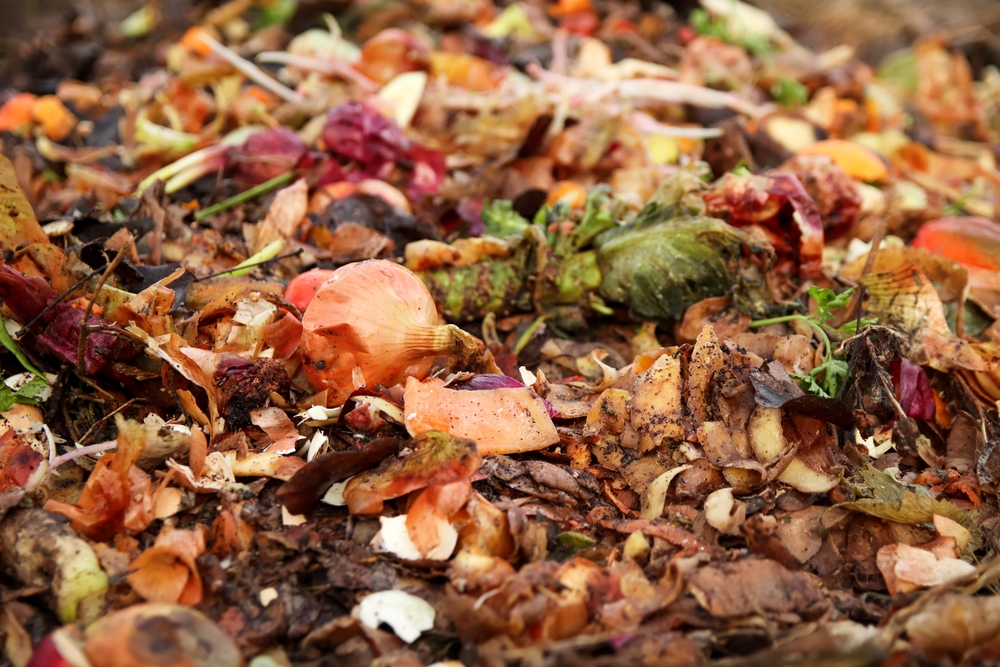
To compost end-of-summer garden waste effectively, the key is achieving a balance between carbon-rich “browns” (like shredded leaves, dry twigs, and straw) and nitrogen-rich “greens” (such as spent blossoms, soft kitchen scraps, and fresh grass clippings). Aiming for a ratio of about two parts brown to one part green helps create the ideal environment for decomposers to break down the material efficiently. Without enough browns, the pile may become too wet and smelly, while too many greens could lead to a slow decomposition process.
Balancing these components is crucial for maintaining healthy microbial activity in your compost. The carbon in browns provides energy for microorganisms, while the nitrogen in greens helps them grow and break down organic material. Pay attention to the ratio to ensure an efficient composting process, which reduces odors and speeds up the breakdown of waste.
Shred Large Plant Material
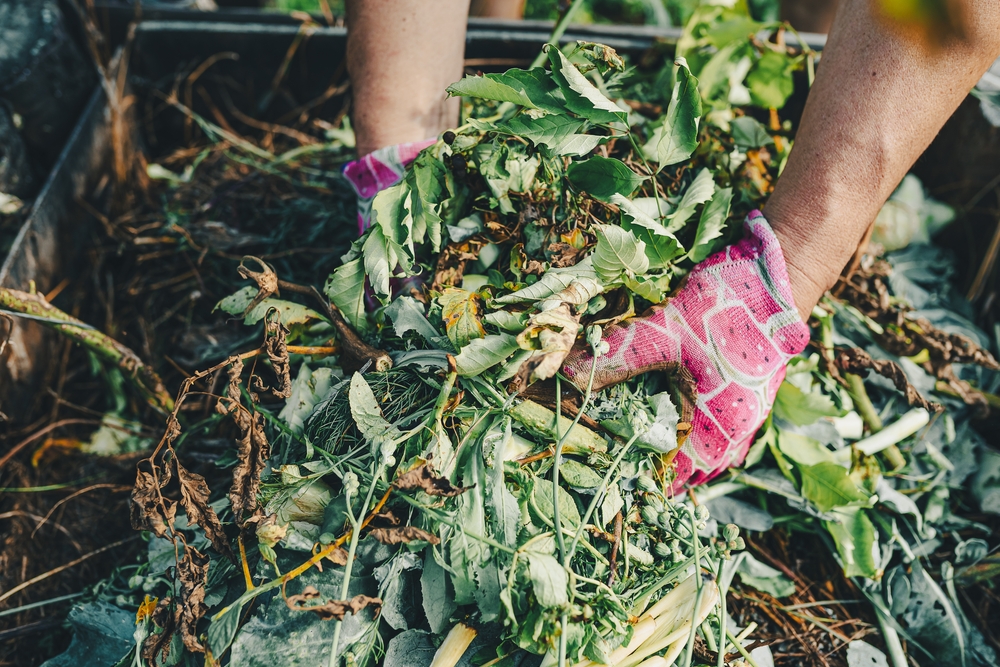
Shredding larger plant material, such as dry stems, branches, or cornstalks, can significantly accelerate the composting process. When you break down these larger items into smaller pieces, you increase the surface area exposed to microbes, which helps them decompose faster. This is especially helpful for tougher materials that take longer to break down when left whole.
You can use a garden shredder or simply cut the materials into smaller pieces using pruning shears or scissors. Shredding the plant matter will make your compost pile more manageable and ensure that decomposition is more uniform. This also prevents larger chunks from causing uneven air circulation in the pile, which can hinder the breakdown process.
Turn the Pile Regularly
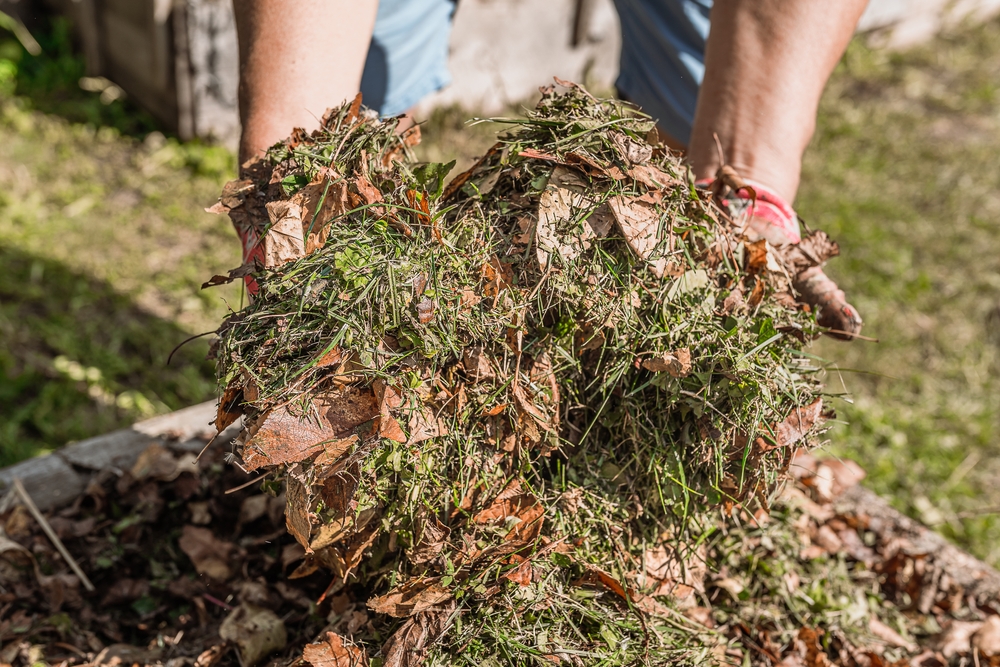
Turning your compost pile weekly is an essential practice for aeration and faster decomposition. Turning helps introduce oxygen into the center of the pile, which is crucial for aerobic microbes that break down organic material. If you neglect turning, anaerobic microbes can take over, causing unpleasant odors and slowing down decomposition.
By regularly turning your pile, you also ensure that the outer layers of compost mix with the interior, helping everything decompose evenly. Aim to turn the pile once a week or whenever you add new materials. This practice not only speeds up the composting process but also helps to prevent the pile from becoming too compacted or stagnant.
Keep the Pile Moist, Not Soggy
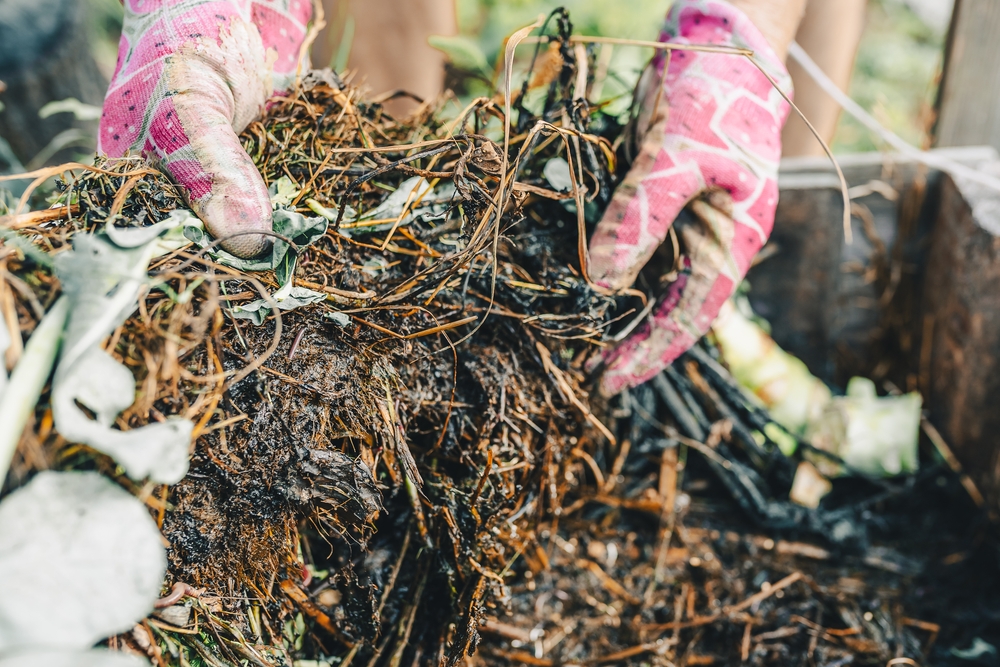
A moist compost pile is essential for decomposition, but too much moisture can lead to a soggy, smelly mess. The ideal compost pile should be damp, like a wrung-out sponge. If the pile becomes too dry, microbial activity slows down, while excess moisture can drown beneficial organisms and cause the pile to become anaerobic.
To maintain the right level of moisture, check the pile regularly and add water as needed. During dry spells, you may need to water the pile a bit more often. However, if the pile is too wet, mix in more browns to help absorb excess moisture and maintain the proper balance for healthy decomposition.
Avoid Adding Diseased Plants
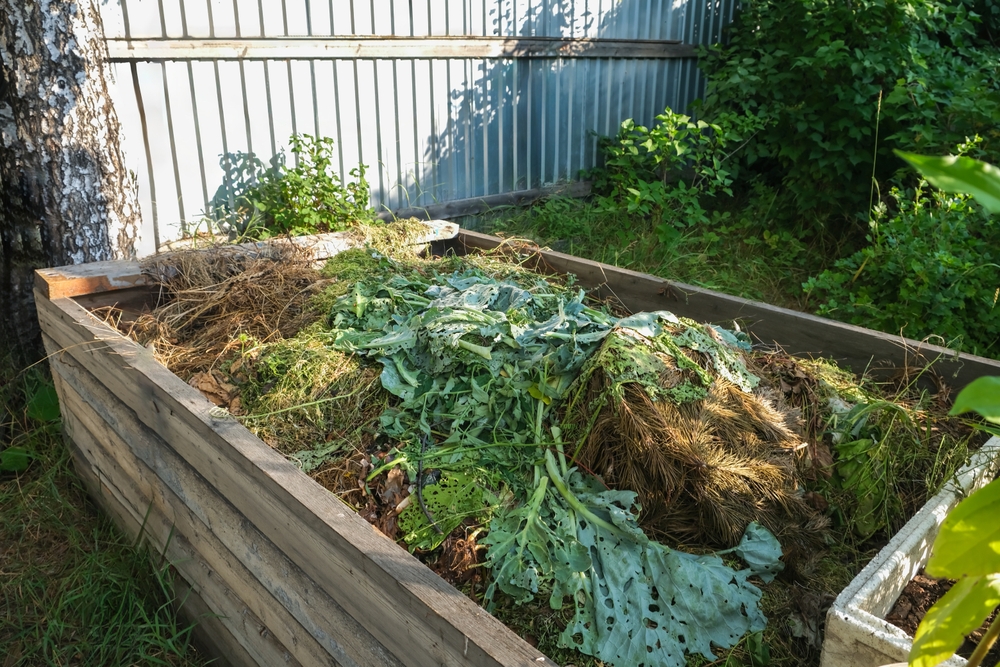
When composting end-of-summer garden waste, it is important to avoid adding diseased plants to your pile. Some plant diseases, such as blight or mildew, can survive the composting process and spread to your garden when you use the finished compost. To prevent this, remove any infected plants from the garden and dispose of them separately.
If you’re unsure whether a plant is diseased, it’s safer to avoid adding it to the compost pile. You can also opt to burn or take it to a composting facility that uses higher temperatures to kill pathogens. By taking this precaution, you can ensure that your compost remains healthy and free of harmful organisms.
Add a Variety of Organic Matter

To make the most of your compost, include a variety of organic materials, including garden waste, kitchen scraps, and even small amounts of paper or cardboard. This diversity of ingredients not only helps balance the carbon-to-nitrogen ratio but also improves the texture and quality of the finished compost. Different types of organic matter provide different nutrients that can benefit your garden.
Kitchen scraps like fruit and vegetable peels, coffee grounds, and eggshells can be rich in nitrogen, while cardboard, shredded paper, and dry leaves contribute to the carbon content. Mixing these different materials ensures that your compost pile has a good variety of nutrients for the microbes that will break everything down.
Use Compostable Kitchen Scraps
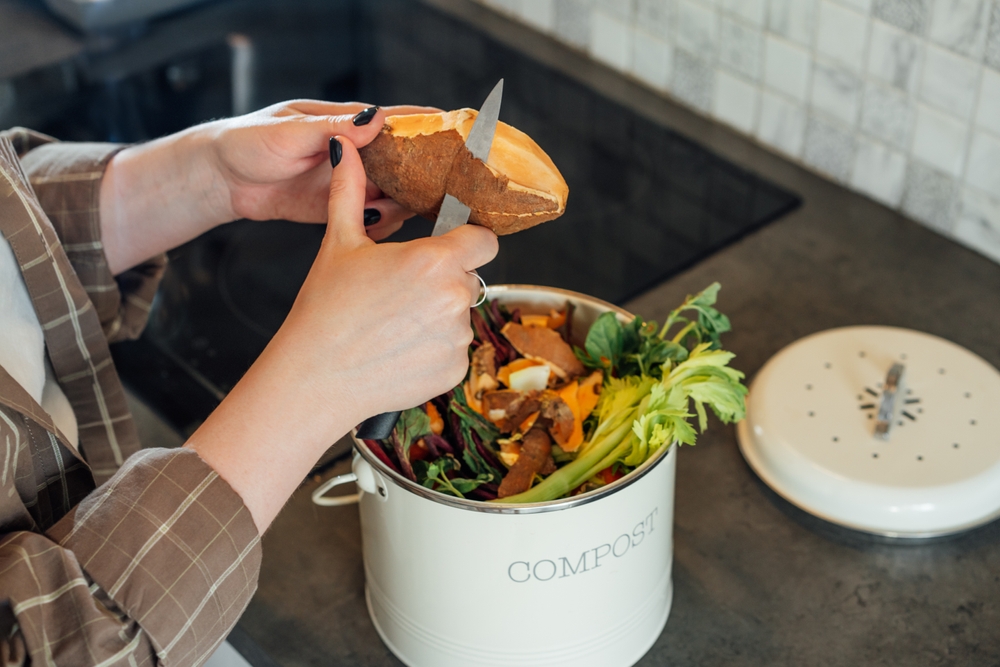
In addition to garden waste, you can add compostable kitchen scraps to your compost pile. These include vegetable peelings, coffee grounds, eggshells, and even leftover grains or pasta. Kitchen scraps provide an excellent source of nitrogen, helping to balance the browns from your garden waste.
However, avoid adding meats, dairy, or oily foods, as these can attract pests and cause unpleasant odors. By keeping your kitchen scraps to plant-based waste, you ensure a healthy, efficient compost pile that is nutrient-rich and free from contaminants.
Monitor the Temperature
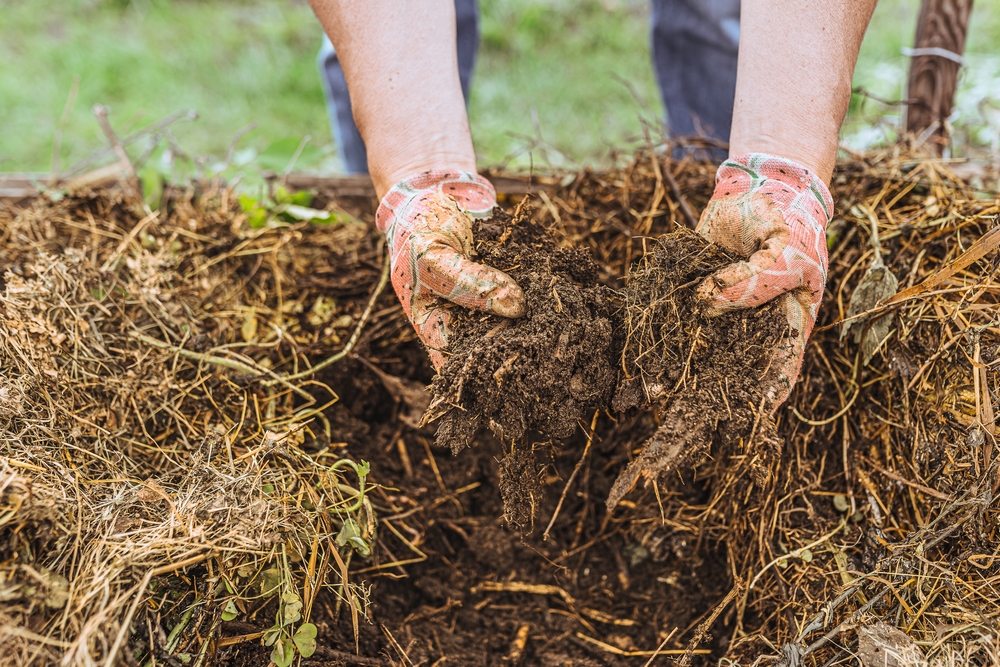
The temperature of your compost pile is a good indicator of how well it’s breaking down. An active compost pile will generate heat as microorganisms work to break down the materials. The ideal temperature range is between 130°F to 160°F (54°C to 71°C), which is hot enough to encourage rapid decomposition while also killing off most seeds and pathogens.
If your pile isn’t heating up, it may be too dry, lacking in nitrogen, or not getting enough oxygen. If it’s too hot, it could be a sign that you have an imbalance of nitrogen-rich greens or that the pile needs more air. Monitoring and adjusting the temperature helps ensure a healthy and efficient composting process.
Keep the Pile Covered
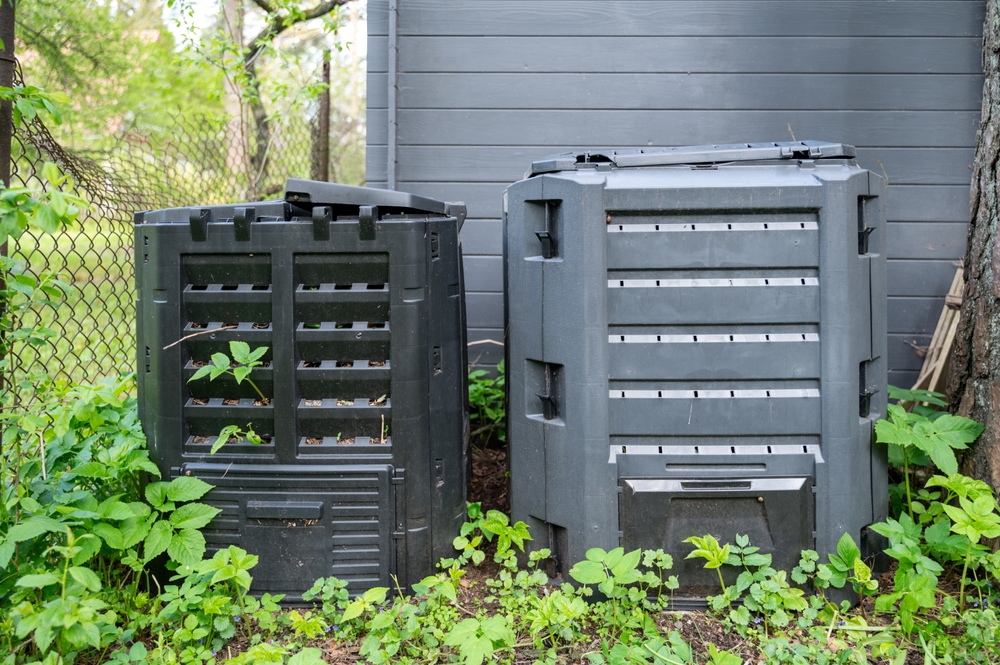
Keeping your compost pile covered can help regulate moisture levels, prevent pests, and protect it from extreme weather. A tarp or compost bin lid can help keep rain from soaking the pile too much while also retaining heat and moisture for better microbial activity. In dry conditions, covering the pile also prevents it from drying out too quickly.
A cover can also help keep animals like rodents or stray pets from rummaging through the compost. While covering the pile is helpful, remember to leave enough space for air to circulate and avoid suffocating the microbes inside.
Choose a Composting Bin or Pile Location
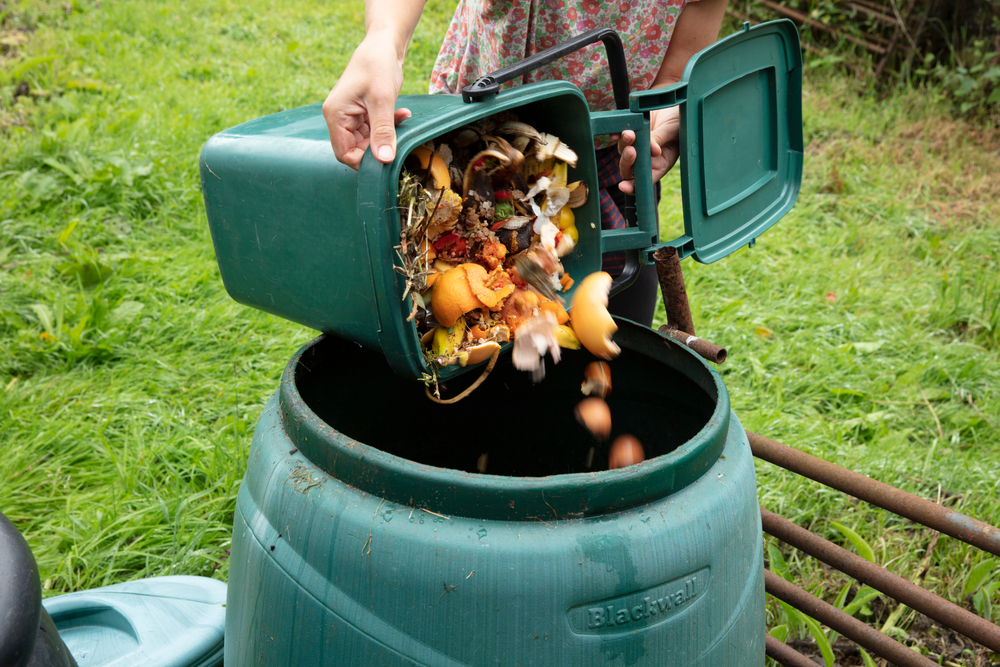
The location of your compost pile or bin is essential for successful decomposition. It should be in a spot that’s easily accessible, receives some sunlight, and has good drainage. Ideally, choose a location that is sheltered from strong winds and heavy rain to maintain consistent moisture levels.
If you’re using a compost bin, make sure it is large enough to accommodate the volume of waste you plan to compost. A well-located pile will receive enough warmth and air to speed up the process, making it easier to maintain and harvest your compost later.
Use Compost Activators if Needed
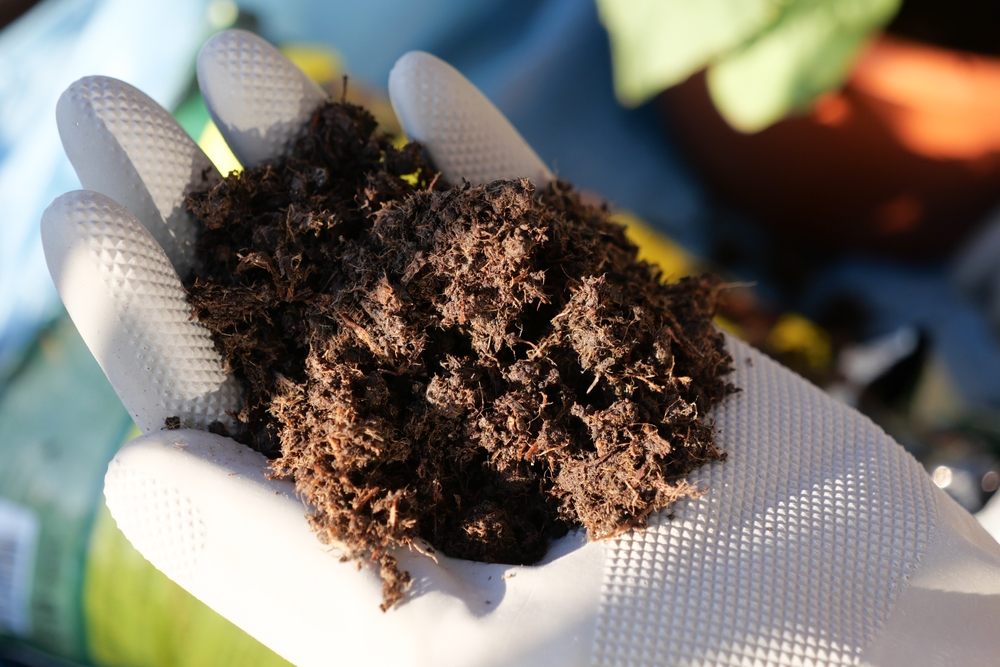
Compost activators, which are products designed to speed up the composting process, can be helpful if your pile is slow to break down. These products often contain a blend of microbes or nutrients that jumpstart decomposition. However, many gardeners find that a balanced mix of greens and browns is sufficient, and activators are not always necessary.
If you’re new to composting or your pile is struggling, you might experiment with an activator to see if it helps. Be mindful not to overuse them, as too many activators can cause an imbalance in your pile, slowing down the process rather than helping it.
This article originally appeared on Avocadu.
